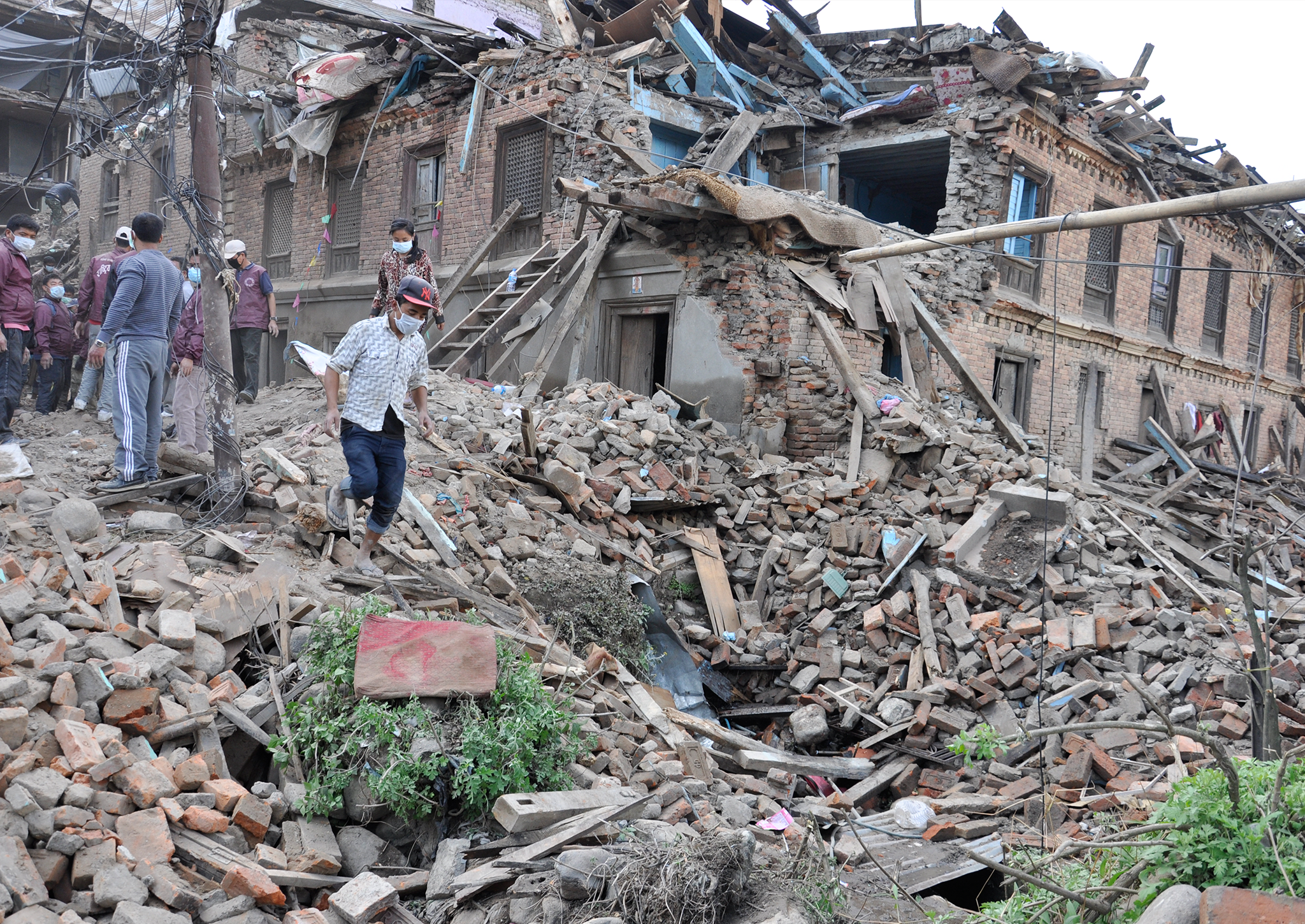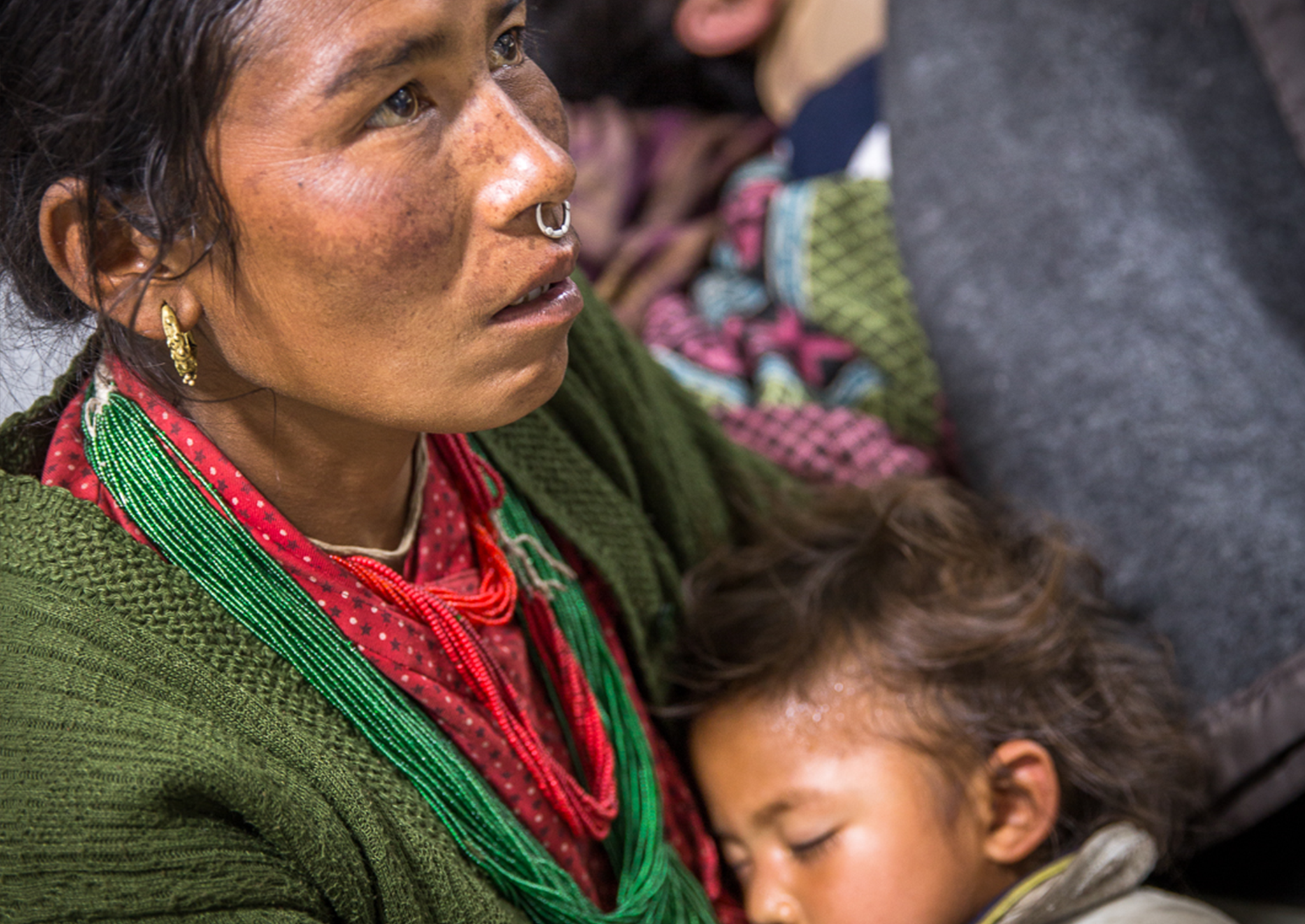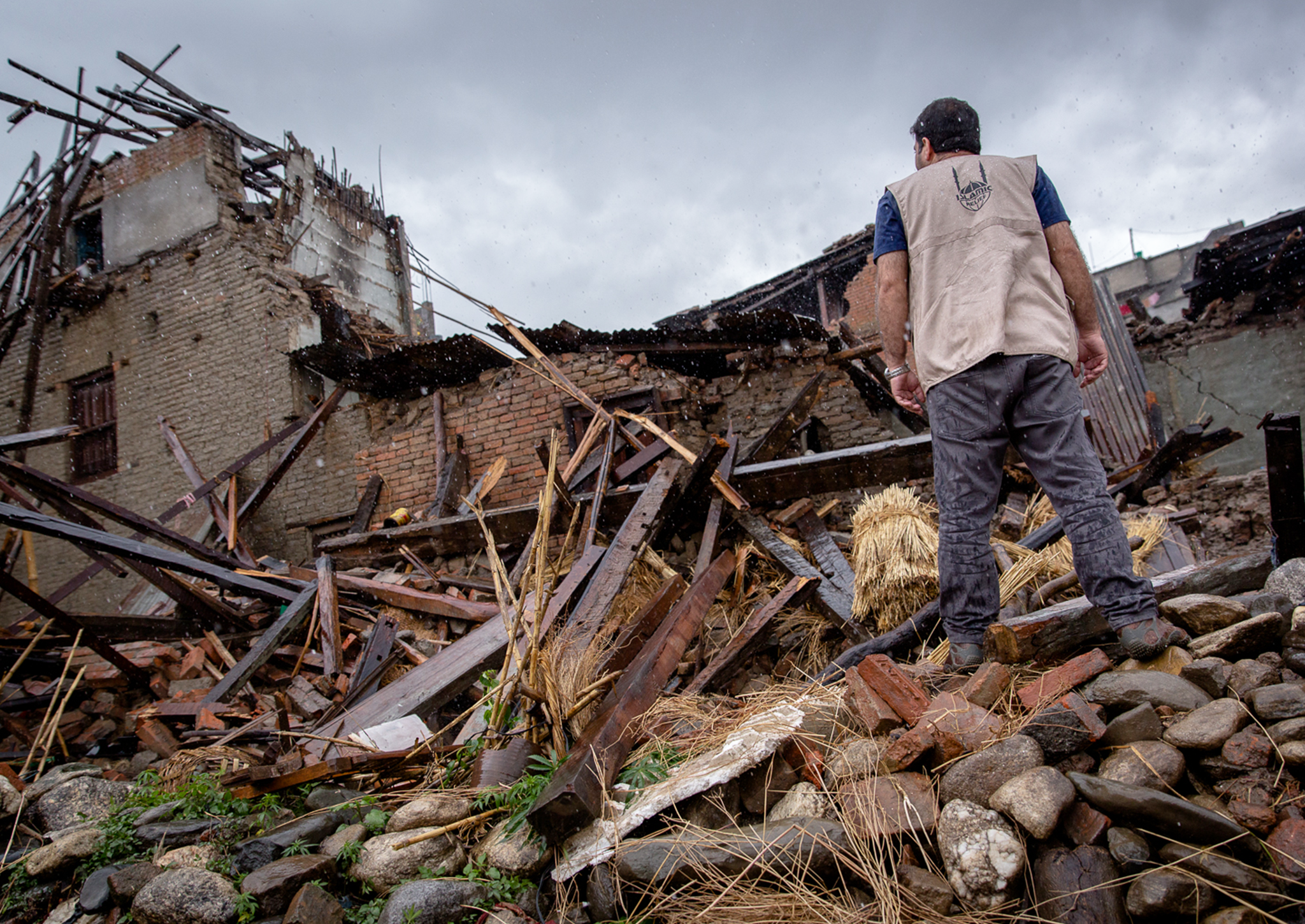With two earthquakes in three weeks and a monsoon fast-approaching, Nepal is on a knife-edge
I have managed disaster responses since 2001, and this has been one of the most difficult situations I've faced

We stayed in tents on Tuesday night. It was safer to sleep under the trees, on the wet ground in the company of mosquitoes, as the hotel where we were staying was deemed too fragile. The whole of Kathmandu has turned into a tent city again after another significant earthquake jolted Nepal earlier in the day.
Temporary shelters have sprung up across public parks and open spaces. Everyone is too scared to go back home or to their hotels. Even hospital patients are sheltering outside in the open air. At lunchtime on Tuesday, we were planning our next distribution for the people affected by the first earthquake in April and the whole building started to shake.
We all ran out of the building as fast as we could, and there was panic everywhere around us. One of my colleagues was injured running out of the office, but thankfully the rest of the team was ok. We were lucky: so far 1,900 people have been injured and at least 65 killed in the latest earthquake. Overall, more than 8,000 people have died, and almost 18,000 have been injured.

I have managed disaster responses since 2001, but this has been particularly difficult because the Nepalese authorities are overwhelmed by the sheer scale of the disaster. The airport is very small and it has taken much longer than normal to get things moving. We have managed to distribute food to over 5,000 people, and tents for over 4,000 people have arrived in Nepal.
But it has taken too long to import goods into the country, and then out to where they are needed. But we are well on our way now, and the aid effort is in full swing. The number of volunteers desperate to help has been overwhelming.
The key priority right now is to make sure everyone is safe from the upcoming monsoon. The rains are fast approaching, and we need to ensure that everyone who is currently sheltering under the open skies receives temporary shelter that will protect them. But we also need to make sure that we're reaching people in the most remote areas, as there are many who have been unable to receive much assistance at all since the first earthquake struck.
I hope to God that Nepal will not be struck by another disaster on the scale of these two devastating earthquakes. But if it is, I hope that more work can be done between now and then so the country is in a better position to help its people, and that the people are in a better position to help themselves.

It has been an emotional experience working here; there is so much trauma everywhere you look. I won’t forget some of the people I have met, such as Nanda, who is paralysed for life after saving his baby daughter named Heera. Or the migrant worker who took out a loan to go to Malaysia, and whose wife died back here in Nepal leaving two children including an infant.
We must stay with the people of Nepal and do whatever we can to improve their wellbeing. Islamic Relief will distribute food, tents and other essential items to over 50,000 people in the next few months, and will invest in building the local capacity for long-term recovery and rehabilitation, alongside resilience to disasters.
Umair Hasan is head of mission in Nepal for Islamic Relief Worldwide and also leads IRW’s humanitarian work in Asia. He is an experienced humanitarian professional having worked in different settings in various countries with leading charities since 1999.

Join our commenting forum
Join thought-provoking conversations, follow other Independent readers and see their replies